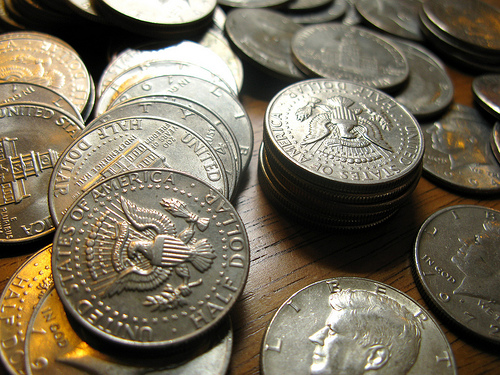
by Adam | Apr 20, 2015 | Credit Repair
If you’ve talked with a representative at a credit repair company, then they probably told you how long it can take to repair your credit on your own. And they’re not wrong. It takes time and perseverance to get errors removed from your credit report. You have to send letters of dispute, sometimes multiple letters to each credit reporting bureau. You have to follow up on those letters. Often you will need to hunt down your creditors, which can be easier said than done. But here’s what you probably weren’t told: it will be worth it. With some planning, organizing, perseverance and above all, patience, you will see results. Improving your credit score can save you thousands of dollars in lower interest rates. A higher score can help you get a mortgage. It can help you get a car loan. You should also keep in mind that while DIY credit repair can take a long time, almost all of that time is eaten up in waiting. The actual work of gathering your credit reports and writing dispute letters will only take a few hours each month. You’ll have to be organized so you don’t miss any crucial steps, but your actual time investment isn’t out of this world. What you will have to do is wait and have patience. Where to start: the first month Your credit repair journey begins with your credit reports. Thankfully, by law you’re entitled to one free credit report per year. You can get your free credit report at annualcreditreport.com. If you’ve already requested a free credit report, and it hasn’t been a year yet, then go ahead...

by Adam | Apr 13, 2015 | Credit Repair
It’s a little-known reality that more than 40 million Americans have errors in their credit reports. All those errors are dragging down the credit scores of millions of people. When it comes to repairing your credit, you can attempt to remove errors in your report yourself, or you can hire a credit repair company to do it for you. But before you go out and hire the first credit repair firm you can find, ask yourself these 4 question: 1. Have you tried DIY credit repair? In all actuality, there isn’t anything a credit repair company can do for you that you can’t do for yourself. You have the right to dispute any errors or erroneous items on your credit report with the credit reporting bureaus; and they are required to investigate all disputes. Actions you can take to repair your credit on your own include: Write a credit dispute letter Get a free copy of your credit report and analyze it for errors Make a plan to get out of debt, and stay out Educate yourself on the things that can hurt your credit score 2. How much time are you willing to spend on credit repair? Keep in mind that DIY credit repair takes a lot of time and perseverance. The credit reporting bureaus are large bureaucracies; it takes time for them to respond to your correspondence, and you will have to follow through and document every single interaction (if you want to see results). If you have the time and energy to repair your own credit, then you can’t beat the price of DIY credit repair. 3. Do you know the differences between...

by Adam | Apr 6, 2015 | Credit Repair
We all know that having a good credit score can help you secure a loan, get approved for a credit card, and even rent an apartment. But who can access your credit report, and who can’t? Not everyone can access your credit report, and for good reason. There is a ton of identifying information in there. In the wrong hands, someone could use your credit report to steal your identity. Thankfully, the Fair Credit Reporting Act outlines who can and cannot view your credit report. Here are the basics. Usually, You Must Give Permission for Someone to Access Your Credit Report Most of the time, you need to give your permission for someone to access your credit report. In the case of credit cards, for example, you give the credit card company permission to pull your credit report when you apply for a card. However, in the case of court orders, collection agencies and government agencies, your permission may not be required. Lenders In addition to credit card companies, banks and mortgage lenders can also access your credit score when you apply for a mortgage. The primary purpose of your credit report, after all, is so lenders can determine whether you are more or less likely to default on a loan. Potential landlords Credit checks are standard when you apply for a rental property. Similarly to lenders, a landlord wants to be reassured that you’ll pay rent on time every month, and your credit report can be a fairly accurate indicator of that. Your prospective landlord will also be looking to see if you have had any past evictions, which...

by Adam | Mar 27, 2015 | Credit Repair
If someone walked up to you right now and asked you about your credit score, would you have an answer? Considering around 60 percent of Americans don’t know their credit score, it’s likely that you wouldn’t be able to answer this question. However, considering your credit score can cost or save you thousands of dollars, learning more about this magic number is important. Below you’ll find broken-down basics– the what, why and how – of credit scores so you can know you number and how to make it benefit you. What is a Credit Score? Your credit score is essentially a number that represents your worthiness of credit. Do you pay bills on time? Are you in debt? Are you a spender? The FICO scale (or Fair Isaac Corporation scale) ranges your credit score from a low 300 to a high 850. After pulling credit information from different lending networks, FICO compiles a report on you that reflects your creditworthiness, or credit score. Why Does My Credit Score Vary? Because FICO uses three different credit bureaus to calculate your score – Equifax, Experian, and TransUnion – you actually have three different FICO scores that can vary by as many as 50 points. Your score can also vary depending on your spending habits, monthly income, debt management and many more factors. FICO has developed credit score ranges to gauge your creditworthiness: 300-579: You have bad credit. It will be difficult to obtain a credit card, be approved for loans and more. 580-629: Your have poor credit. Though you might qualify for a credit card, its limits will and its rewards...

by Adam | Mar 20, 2015 | Credit Repair
When a friend or relative approaches you with the opportunity to cosign on a loan, you may feel a variety of emotions. Whether you feel concerned, or excited to help a friend, there are many things you should know before you make this decision. The truth of the matter is, although cosigning on a loan may seem like a good idea, it almost never is. For a cosigner, a loan is a risky choice with very little reward involved. The main reason a person requires a cosigner is because the lending institute deems them a high risk consumer and views them as unlikely to pay, which can potentially leave a cosigner in the position of being primarily responsible for repayment. Here are a few things you should know before you even consider cosigning a loan to help out a friend or family member. It’s a Risky Proposition The first, and perhaps most important element of cosigning a loan is that it is extremely risky. When you get a loan for yourself the rewards often outweigh the risk, but when you cosign, the rewards are small, if there are any rewards at all. Cosigning can have a positive effect on your credit if payments are made regularly, but the effect is minimal. If payments are not made, on the other hand, the hit on your credit will be much larger. You are Responsible in the Eyes of the Lending Institute Because the loan recipient could not have qualified for the loan without your signature, the lending institute will hold you primarily responsible for loan repayment. This means that if payments...







Recent Comments